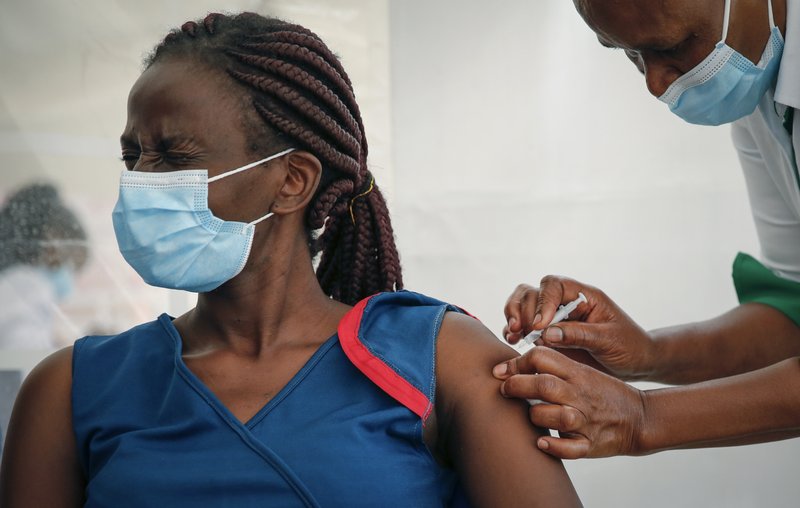

The head of the Africa Centers for Disease Control and Prevention warned against a “vaccine war” among nations amid renewed fears vaccine shipments to the continent face delays.
John Nkengasong said in a briefing Thursday that he “truly feels helpless that this situation is going to significantly impact our ability to fight this virus,” referring to reports that the Serum Institute of India is suspending major exports of the AstraZeneca COVID-19 vaccine in order to meet rising demand at home.
“Without ramping (up) access to vaccines we will be challenged, continue to be challenged. Lives will be lost,” Dr. Nkengasong said, adding that he remains hopeful “that the power of humanity will prevail.”
He added: “There is absolutely no need, absolutely no need for us as humanity to go into a vaccine war to fight this pandemic. We will all be losers.”
The Serum Institute of India produces the AstraZeneca shots being shipped to Africa through the international COVAX initiative to ensure vaccine access for low- and middle-income countries. At least 28 of Africa’s 54 countries have received over 16 million doses via COVAX as of Thursday.
Vaccine shipments through COVAX continue to arrive across Africa. South Sudan, for example, is receiving over 100,000 doses Thursday.
But COVAX has been facing delays related to the limited global supply of vaccine doses as well as logistical issues. That’s why some countries such as South Africa, the hardest-hit African nation, are also pursuing COVID-19 vaccines via bilateral deals and through the African Union’s bulk-purchasing program.
At least 10 African countries are yet to receive vaccines, according to the World Health Organization’s regional office for Africa. Those countries include Tanzania, Burundi, Eritrea, Cameroon, and Chad.
The continent has “has received limited doses and much later than the rest of the world,” Dr. Richard Mihigo, a program coordinator in charge of immunization and vaccine development with WHO’s Africa office, said in a briefing Thursday.
“We are concerned that while COVAX vaccinations have enabled many African countries to roll out vaccinations, the slow pace of vaccine supply we are now seeing risks widening the gap between the world’s vaccinated and the unvaccinated populations,” he said, charging that it’s unfair that some wealthy nations “are looking to vaccinate their entire populations” while Africa continues to lag behind.
There are ongoing discussions between the WHO, the global vaccine alliance GAVI and Indian authorities aimed at ensuring COVAX shipments continue to be prioritized, the official said.
Africa hopes to vaccinate 60% of its 1.3 billion people by mid-2022 in order to achieve herd immunity, when enough people are protected through infection or vaccination to make it difficult for a virus to continue to spread. That amounts to about 1.5 billion vaccine doses.
That target almost certainly will not be met without widespread use of the AstraZeneca vaccine, which many experts see as key to the global strategy to stamp out the coronavirus pandemic. The vaccine from the Anglo-Swedish drugmaker is cheaper and easier to store than many others. It will make up nearly all of the doses shipped in the first half of the year via COVAX.
Experts have warned that until vaccination rates are high the world over, the virus remains a threat everywhere.
“We are all in this together. This is a global pandemic, and we need to solve it through global vaccination, global public health methods,” said Anthony Costello, a professor of global health and sustainable development at University College London.
Costello told the WHO briefing that while Africa, with its much younger population, is seeing lower death rates than other regions, “we must put pressure on wealthy countries to ensure that they offer the finance and the assistance to Africa to get the required number of vaccines.”
Africa has confirmed more than 4 million cases of COVID-19, including 110,000 deaths, according to the Africa CDC.